Introduction
Becoming a professional poker player, if you dream of it long enough, may inspire images of mansions and the finest things in life. Becoming a professional poker player is more than just learning the rules of how to play; it takes dedication, intelligence and self-discipline. Poker entails strategy, patience and emotional fortitude which are skills you must possess to make a living from the game. No matter if you have ambition of becoming a pro or are just trying to level up your current game, this guide will give you an overview over the most important steps on how to become better.
When you enter the path of being a poker pro, remember — this is not about playing cards; it’s an investment in your skills and mental flexibility for long run. In this article, we show you the essential pieces of puzzle that are required to become a successful poker player — from learning the basics to keep building your bankroll and working on developing mindset it takes to consistently play at a high level. Because, of course, in the right way.. then you can play poker for a living and successfully become part of one among numerous professional firebrands globally. So, let’s start from the beginning and get you to pro poker vet level.
Understanding the Basics of Poker
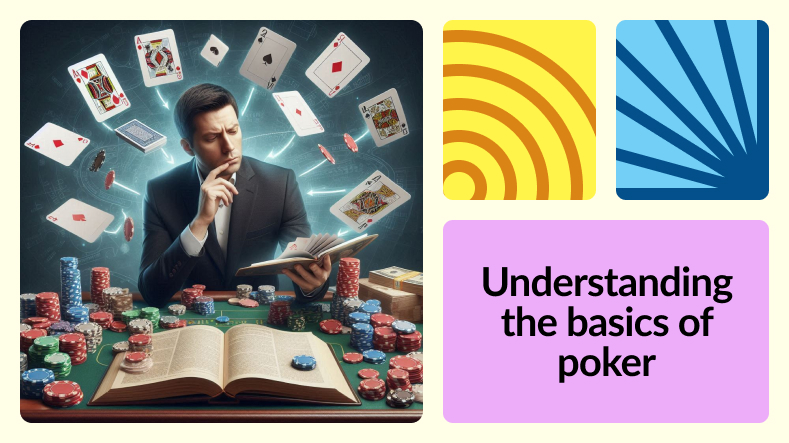
1.1 What Is Poker?
The very first thing you need before learning is to know what poker actually is- so check out this definitive guide on only poker (by a true former pro) where we will also look at how to become a professional Poker player in — and have played it for 2 decades. Poker is fundamentally a game of skill, strategy and luck in which players wager on the strength of their respective hands. The aim here is to either win the pot at showdown or get your opponents to fold. The basic rules of poker are consistent whether you play online or live games. Nevertheless, the game has different variations such as Texas Holdem and Omaha which is vital for anyone looking to become a poker professional.
1.2 Various Poker Games
The next part of our how to be a pro poker player guide is going deep into the types of game you can play. The version you probably already know is Texas Hold’em, but there are so many other types of poker. The Odds for Five Poker VariantsWhen it comes to the most popular poker games, each has its strategy and rules from Omaha to Seven Card Stud. E-professional poker players typically have a specialty but are able to play other flavors when they must do so. To be an actual pro, you should strive to excel in one form of poker and at least have a sufficient grasp on the rest.
1.3 Rules and Etiquette
The professional poker player has good knowledge about the rules, as well as etiquette of playing this game and if somebody knows all these things should know how to win a hand. No matter where you play, live casino or online no one is forgiving with poker rules so you must stick to them. Arguably more important are the invisible rules — table manners, etiquette toward other players and the understanding that you should respect what we in poker call “the game. So, it becomes a must to have this piece of understanding if you aspire being a professional poker player.
Assessing Your Skills: Are You Ready for the Next Level?
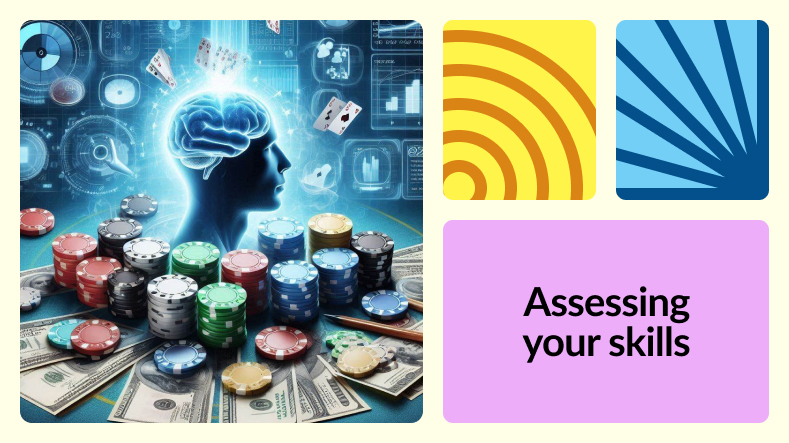
2.1 Self-Assessment: Understanding Your Strengths and Your Weaknesses
The first step to becoming a professional poker player is for your skills of the trade in which you currently reside, too offer an honest assessment. Do you win more than lose? Are you good at reading your opponents? Being a professional poker player more than just luck; it is the right decision following every confusion that matters. You will need to assess where you are at this time. Know Your Staggers and weak spots, which areas are you stressing in order to succeed or take your game up a notch
2.2 Game Development: Mastering Your Craft
When wondering how to be a professional poker player, you must keep improving your skills. An ever learning game; poker. Whether it be advancing your bluffing or calculate skills or broadening understanding of various techniques, there is a requirement to improve in all areas. This means putting in the work on a regular basis, reviewing hands you play and learning from every loser. The best professional poker players are always getting better, and so should you.
2.3 Poker Improvements
One of the tools and resources you can use to enhance your game, is a course designed by professionals who had become poker pros. With so many apps, websites and software programs available to help you track your results or analyze hands an ever increasing number of key insights can be drawn. You can also get out there and be a part of the poker communities in order to learn from professional players and gain their insights as they take on your own game. If you are serious about being a pro, these resources he gives with the program is priceless. As with anything, practice makes perfect and the more you use these things the better that you will get at playing poker professionally.
The Importance of Bankroll Management
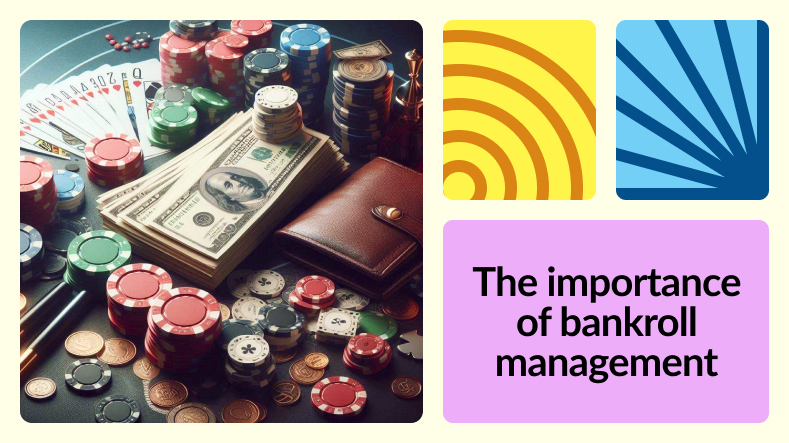
3.1 So, What Is Bankroll Management?
Bankroll management is the most important thing you need to consider while thinking about going pro in poker. In a nutshell, it defines how much you use your money in poker. In your quest to become a professional poker player you will need to able handle the variance of tournament or cash games. Poker is a game, and all games can not go as planned even the best of them. But if you have proper bankroll management, you know that these kinds of periods are bound to happen and survive long enough for your edge to bear fruits.
3.2 Setting Limits: How Much to Invest
If your goal is to become a high stakes poker pro, you should decide upfront on which amounts are acceptable for how much and when will be the turning point. It involves setting aside a certain sum of money which you would use for poker and making sure that all the extra-money is off limits to this bankroll. Another important element is the size of each session, however you cannot risk more than what your bank roll can support. If those who play at the highest level of this game are, to succeed you must as well. Being able to make sure your bankroll is protected helps you in having a longer poker life.
3.3 Tips on how to Secure Your Bankroll
Keeping your bankroll is an important part of becoming a pro poker-player. Playing within your limits, does not play high risk games if you have very little credit in the bag and never chase a loss. If you want to be professional poker player and make a living from it, then play like business-man. And the first important thing you have to remember is when do u leave and stay in a game Don’t let a losing streak cloud your judgment – always keep emotions in check. Keep your bankroll safe, and it will keep you in the game.
Developing a Winning Strategy

4.1 Poker Odds, Probabilities and Expected Value
Knowing poker odds and probabilities is one of the first steps if you are serious about becoming a good poker player. Poker is all about numbers and if you know the odds of doing certain things, like getting a flush or set on the turn/river it gives players a major advantage over other opponents. They integrate chance calculations in their play and you need to spark the instinct of calculate odds instantly_selected performances. The more math you know about poker, the better choices you are going to make and that should raise your win rate. You will need to learn how to get your pot odds and implied odds together, as well as the likelihood of hitting a draw on flop.
4.3 The Craft of Bluffing
Bluffing is one of the most exciting and necessary part of poker. You need to learn how to bluff — If you want to be a successful poker player. That does not mean bluffing in absolutely every hand, but you will be able to determine when and how much with the objective of increasing your chances of actually gathering all prices. Bluffing aids pro poker players to keep their opponent guessing and not let them get too comfortable. That takes a real tightrope of walking, and if you bluff too much you will be caught. If you bluff too infrequently, then you’ll miss out on some key spots to win big pots.
4.3 Playing against different opponents and environments
Adaptability is the name of the game when it comes to being a professional poker player. In other words, Poker is not a vacuum. It all depends on the enemies you are fighting and even where your battling them. Is playing a game in the casino populated with aggressive players? Or are you grinding a field of fish and sharks in an online poker tournament? You must know how to interpret the table and adjust accordingly. You also need to always be updating your game theory and think like a tournament professional if you hope for the big leagues.
The Mental Game: Preparing Yourself for the Long Run
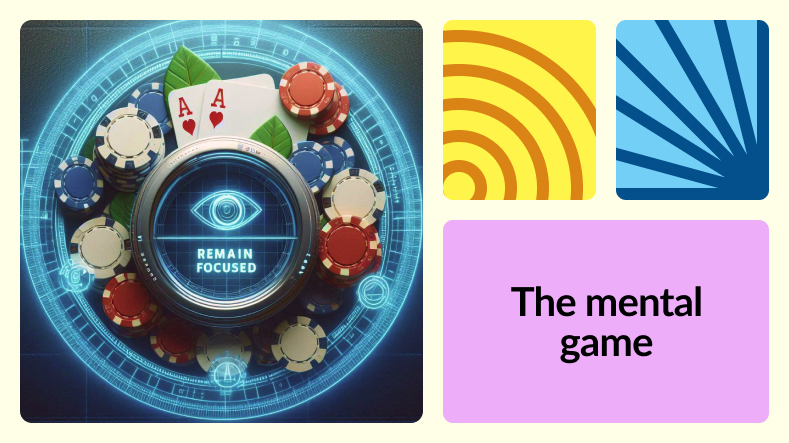
5.1 Remain Focused: Avoid Tilt
Any aspiring professional poker player will have to master tilt. Tilt — Tilt is when you lose control and start to show negative emotions like frustration or anger after a hard hand, bad beat etc. You learn to stay poised, no matter what the circumstances. For that is how you control your emotions, stopping yourself from making impulsive decisions. Tilt has destroyed some of the finest players in world, so learning to deal with it and how you centre yourself is really important. If you are looking to pursue a career as a professional poker player, make sure to practice mindfulness and take breaks when necessary so that each hand you play is with the clarity of mind.
5.2 Develop emotional resilience
Professional poker is a marathon. It is not about winning one hand or tournament; it should be the mentally managing of poker over a life time. Becoming a professional poker player takes emotional resilience because it helps you lose but still come back with confidence later on. All good poker players expect to lose from time to time, but in our experience it does not happen as often. Unfortunately, if you wanna play poker for a living you gotta be thick skinned and not let the little things get in your head. The fact is you can indeed live off poker but only if you have the stomach for it.
5.3 Cultivating Patience and Fortitude
One thing has long been built into poker: patience. When trying to become a professional poker player, you need to accept that not all hands will be winning. At times you will find that you have to fold more than play as well just waiting for the perfect time to make your move. Consistently patience, along with discipline becomes the difference between amateurs and pros. This means you have to learn how not to get moved by the emotion and stick with your strategy. Discipline — If you are looking To become pro poker player, it is essential to have discipline in your game which means making decisions based on reason and not emotions. And with time, this patience and discipline will become part of you making intelligent plays over an extended period.
Transitioning from Amateur to Professional
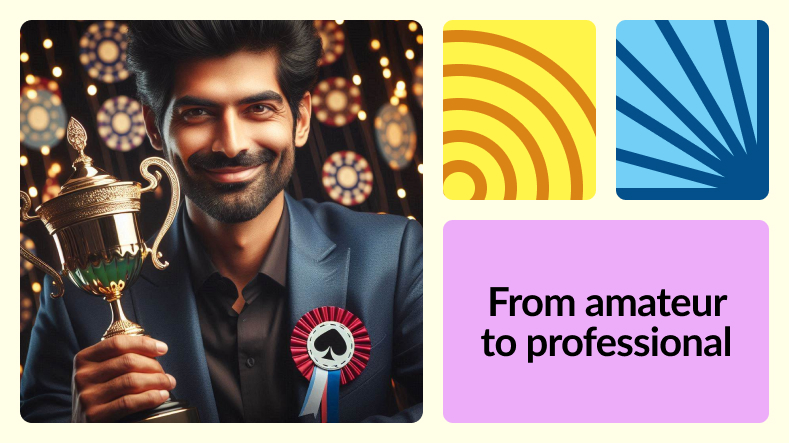
6.1 Setting Realistic Goals
Setting your sights too high is a sure fire way to lose motivation when you step on the journey of becoming a poker professional. For instance, you can not simply go from playing low stakes games to winning an MTT over night. As in any creed, to arise a professional poker player: it is ease & glue mentoring more profound comprehension as healthy withstand the spell of gravitating almost consistent. Begin with one variant of poker, say Texas Hold’em and progress up as you perfect your skills. Its important you realize that it takes time and effort to be a professional, so realistic goals help us keep all ultimately motivated in the long run.
6.2 Jumping Ship: From Casual Poker Player to Pro
Preparing Yourself For Full-Time Poker Prior to transitioning from recreational poker hacker to a professional, make sure you are as well prepared when it comes both financial and psychologically. Going professional at poker is not only playing more and turning a hobby into your living but treating it as you would treat any other business. This include having a good bankroll, organisation of some kind and the ability to manage your emotions through thick and thin. Perhaps you might want to play part-time for a while before moving in full time, until your bankroll and confidence allow this. You have to be able to know when the time is right and that means not until after you go on a proven upswing at higher stakes.
6.3 The Need for Networking in Poker Community
Becoming a Professional Poker Player: Networking Forming connections within the poker community might provide you access to private cash games, tourneys and maybe sponsorship deals. Learn why it’s so important to talk with other pro poker players, learn from them and share strategies. The poker community is relatively small, and the more you interact with it, the more knowledge will rub off on you. If you intend to make any money playing poker you will need a network of proponents.
Balancing Life and Poker
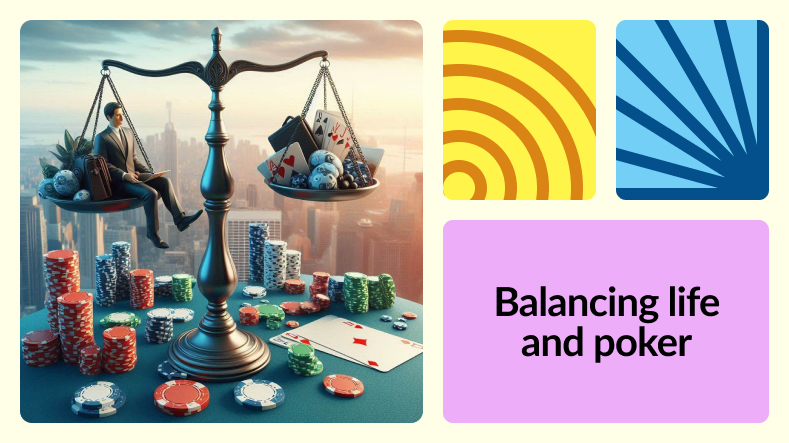
7.1 Healthy lifestyle maintenance
It is extremely important to have a healthy poker lifestyle if looking forward to be a professional Poker player. However, if you are not too careful, long hours spent on the felt can easily lead to poor physical and mental health. It is common knowledge that to be sharp and focused, individual need regular exercise along with a balanced diet for at least 8 hours of sleep. Thinking of becoming a professional poker player, begin investing the right way using body treating your like an athlete. Playing poker is a test of mental endurance and the better you take care of yourself, the more sharp and successful at it you will be.
7.2 Managing Time Effectively
Being able to manage your time properly is one of the most important parts when beginning your journey into being a professional poker player. You must be able to find the balance between play time, study and life outside of poker. Staying mindful of long sessions, refrain from temptation in order to join the ranks as a professional poker player. You should have a schedule devoted purely to poker and make sure you do not waste your time in other areas of life. Striking this balance will prevent you from burning out and lead to your long-term success.
7.3 Human Relations and Socialization
This one can get difficult, but as a future professional poker player with your relationships and social life. Poker also has the potential to be a very lonely profession with endless hours and only intense focus. This is why we need a foot in two worlds too: life with family and friends, to keep us grounded. Being a professional poker player doesn’t mean you have to give up living life, just keep it in balance. If you want to be a successful poker player, with regular stable income from playing full-time for a living — then it will require support when it comes to the abundance of emotions that come both as highs and lows!
Legal and Ethical Considerations

8.1 The Basics of Poker Laws Where You Live
If you want to become a professional poker player, first of all, it is necessary for you to know the poker laws in your country. While poker is heavily regulated in some locations, in other it’s the wild west. If you are very serious in being a professional poker player, then such an environment can be extremely important because here is where the legal aspects come into play. It will help you stay in the rules and also protect yourself legally as long as if how to play online real money poker or live setting with In The Law.
8.2 Online vs Live Poker Regulatory Navigation
Becoming a professional poker player also requires you to work through the regulations in place for each locale, online and live. There are different rules and laws that can be implemented on the various online poker sites or depending in what country you live some others, this is why a professionally player should always know these standards to assure they play without breaking any regulations. No matter what, each and every poker pro needs to know these things in order not just play but safely join in with games.
Continuous Learning and Adaptation

9.1 Staying Current with Poker-purchase Trends
Poker has the highest rate of change in any game since things work differently all the time, so becoming a pro poker player demands you to innovate with times. Adapting to new strategies, rules and game formats you must know. Discovering new online platforms, or just keeping an eye on how the pros are playing in major tournaments is essential if you want to be able to play poker for a living.
9.2 Debugging and Drawing the Lessons
Poker is definitely the wrong game to try and be mistake free at. To become a professional poker player, you must have the will to examine your losses and learn from them. Although he’s light-hearted about it, even professional poker players who win at the game still lose half of their hands. You must need a hand history review, know what you did well and how to lower your loss in the future. Being a professional poker player is an ongoing process of development and adjustment.
9.3 Poker Training Programs Hedging
So, if you wish to be a professional poker player then take some time out and join any of the suitable Poker Training program. These programs deliver major value, and they give you tips from real professionals who were once in your shoes. You must understand how to use the resources this articles provides you with, so that you can increase your skills and out-do all of them. Poker training programs are an investment in you; one that will keep you ahead of the curve as our game continues to evolve.